Amos 2 meaning explained in AI Summary
Chapter 2 of the Book of Amos focuses on God's judgment against the surrounding nations, including Judah, for their sins.
- Verses 1-3: God condemns Moab for three specific sins:
- Desecrating the bones of the king of Edom (showing ultimate disrespect for their enemy).
- Their general cruelty and violence.
- Their pride and arrogance.
- The punishment: Devastation, destruction, and exile.
- Verses 4-5: God condemns Judah for two main reasons:
- Rejecting God's law and instructions.
- Following false gods and idols.
- The punishment: Fire that will consume their fortresses.
- Verses 6-8: God condemns Israel (the Northern Kingdom) for a litany of social injustices:
- Selling the righteous into slavery for profit.
- Exploiting the poor and needy.
- Perverting justice through bribes.
- Sexual immorality, particularly the exploitation of young women.
- The punishment: Defeat in battle, exile, and loss of their land.
- Verses 9-12: God reminds Israel of His past faithfulness:
- He delivered them from Egypt.
- He gave them prophets and Nazirites to guide them.
- Despite this, they rejected His messengers and turned away from Him.
- The punishment: God will bring calamity upon them, even on their feasts and celebrations.
- Verses 13-16: God describes the coming destruction:
- Even the strongest warriors will be unable to escape.
- Their horses will be useless, and their bravest soldiers will flee in terror.
Overall Message:
Amos chapter 2 delivers a powerful message about the consequences of sin and injustice. God will not tolerate the oppression of the poor, the rejection of His law, or the worship of false gods. He holds all nations accountable for their actions, and His judgment will be swift and severe. However, even in judgment, there is a glimmer of hope. God remembers His covenant and yearns for His people to return to Him.
Amos 2 bible study ai commentary
Amos chapter 2 continues the "oracles against the nations," concluding the condemnation of Israel's neighbors before turning the prophetic focus squarely on God's own covenant people, Judah and Israel. The chapter builds in a climactic crescendo, demonstrating that God judges all nations for their violations of universal moral law, but He holds His own people to a higher standard based on His revelation (the Law) and His history of redemption. The primary charge against Israel is not idolatry alone, but the deep-seated social injustice and exploitation of the poor, which renders their religious observances profane and hypocritical.
Amos 2 context
Amos prophesied during the mid-8th century BC, a period of unprecedented prosperity and military strength for both the Northern Kingdom of Israel (under King Jeroboam II) and the Southern Kingdom of Judah (under King Uzziah). This material wealth, however, created a corrupt upper class that oppressed the poor and vulnerable. Outwardly, religion flourished, but it was divorced from the ethical and social demands of the covenant. Amos, a shepherd from Tekoa in Judah, was sent by God primarily to confront the social decay and religious syncretism in the Northern Kingdom of Israel.
Amos 2:1-3
Thus says the LORD: “For three transgressions of Moab, and for four, I will not revoke the punishment, because he burned to lime the bones of the king of Edom. So I will send a fire upon Moab, and it shall devour the strongholds of Kerioth, and Moab shall die amid uproar, amid shouting and the sound of the trumpet. I will cut off the ruler from its midst, and will kill all its officials with him,” says the LORD.
In-depth-analysis
- This is the last of the oracles against foreign nations, setting the stage for the focus on Judah and Israel.
- Sin of Moab: The desecration of a dead king's bones. This act was not a direct crime against Israel but a violation of universal human decency. Burning bones "to lime" (l'sid) was an act of ultimate contempt, intended to permanently erase memory and deny a proper burial.
- Significance: God is not merely a tribal deity for Israel; He is the sovereign Judge of all nations, upholding a universal moral law. Even pagan nations are accountable for their inhumanity.
- Judgment: "Fire" is a common metaphor for divine judgment. The description of death "amid uproar, shouting, and the sound of the trumpet" depicts a scene of total military defeat and chaos, a complete reversal of a battle cry of victory.
Bible references
- 2 Ki 3:26-27: "...he took his eldest son...and offered him for a burnt offering... And there came great wrath against Israel..." (Possible historical context for the Edom-Moab conflict).
- Jer 48:1: "Concerning Moab. Thus says the LORD of hosts, the God of Israel: 'Woe to Nebo, for it is laid waste! Keriathaim is put to shame...'" (Another major prophecy against Moab).
- Pro 16:5: "Everyone who is arrogant in heart is an abomination to the LORD; be assured, he will not go unpunished." (God's judgment on arrogance and desecration).
Cross references
Deu 2:9 (God's earlier protection of Moab); Num 24:17 (Balaam's prophecy against Moab); Isa 15-16 (Burden of Moab); Zeph 2:8-9 (Judgment on Moab's pride).
Amos 2:4-5
Thus says the LORD: “For three transgressions of Judah, and for four, I will not revoke the punishment, because they have rejected the law of the LORD, and have not kept his statutes, but their lies have led them astray, those after which their fathers walked.” So I will send a fire upon Judah, and it shall devour the strongholds of Jerusalem.
In-depth-analysis
- Transition: The oracle now turns to Judah, Israel's southern kinsman. This move brings the judgment closer to home for the primary audience in Israel.
- Sin of Judah: Their sin is deeper than Moab's. It is the rejection of God's special revelation.
- "Rejected the law (Hebrew: torah) of the LORD": This is not just disobeying a rule but spurning God's entire covenant instruction and relationship.
- "Their lies (kazav) have led them astray": "Lies" is a common prophetic term for idols. Idols are a deception; they promise security and blessing but are empty and lead to ruin.
- Generational Sin: They followed the idols "after which their fathers walked," indicating an ingrained, generational apostasy.
- Judgment: The same "fire" of judgment is promised, specifically targeting Jerusalem, the center of their political and religious life. This prophecy was fulfilled in the Babylonian conquest of 586 BC.
Bible references
- Jer 8:9: "...they have rejected the word of the LORD, so what wisdom is in them?" (Echoes the same core sin).
- Rom 1:25: "...they exchanged the truth about God for a lie and worshiped and served the creature rather than the Creator..." (Explains the nature of idolatry as exchanging truth for lies).
- 2 Ki 24-25: (Historical fulfillment of the destruction of Jerusalem by fire).
Cross references
Deu 29:25-28 (Covenant curses for apostasy); Isa 28:15 (Making a covenant with lies); Hos 8:14 (Forgetting the maker and building palaces).
Amos 2:6
Thus says the LORD: “For three transgressions of Israel, and for four, I will not revoke the punishment, because they sell the righteous for silver, and the needy for a pair of sandals—”
In-depth-analysis
- Climax: This is the seventh and final oracle, the longest and most detailed. The rhetorical trap is now sprung on Amos's audience in the Northern Kingdom.
- The Charges: The indictment against Israel focuses almost entirely on social and economic injustice, not just idolatry.
- Selling the Righteous: This refers to the corruption of the justice system. The "righteous" (saddiq) are those innocent in a legal dispute, but judges and creditors condemn them for a bribe ("silver").
- "For a pair of sandals": This became a proverb for something of negligible value. It shows the utter contempt for the poor; a human being's freedom is being sold to settle a debt as trivial as the cost of sandals. It depicts a society where profit has completely eclipsed human dignity.
Bible references
- Amos 8:6: "...that we may buy the poor for silver and the needy for a pair of sandals..." (Amos repeats this key charge, showing its centrality).
- Exo 23:6-7: "You shall not pervert the justice due to your poor in his lawsuit. Keep far from a false charge..." (Direct violation of Mosaic Law).
- Mic 3:11: "Its heads give judgment for a bribe; its priests teach for a price..." (Highlights the systemic corruption).
Cross references
Isa 5:23 (Acquitting the guilty for a bribe); Pro 17:15 (He who justifies the wicked is an abomination); Lev 25:39-40 (Law against treating Israelites as slaves).
Amos 2:7
“—those who trample the head of the poor into the dust of the earth and turn aside the way of the afflicted; a man and his father go in to the same girl, so that my holy name is profaned;”
In-depth-analysis
- Image of Oppression: "Trample the head of the poor into the dust" is a brutal and vivid image of humiliation and utter disregard for the powerless. "Turn aside the way of the afflicted" means to deny them justice and obstruct their path to legal recourse.
- Sexual Immorality: "A man and his father go in to the same girl" describes egregious sexual sin. This likely refers to:
- Cult Prostitution: A common practice in Canaanite fertility cults, which Israel was adopting.
- Exploitation: Forcing a household slave girl into sexual servitude.
- Profaning the Holy Name: The ultimate crime. These actions—social oppression and sexual depravity—are not just social evils; they are theological crimes. They misrepresent the character of Yahweh to the world, thus profaning (chillel) His name. True worship honors God through just and holy living.
Bible references
- Lev 20:3: "...and has profaned my holy name." (Connecting abominable acts to profaning God's name).
- Lev 18:8, 15: "You shall not uncover the nakedness of your father's wife... You shall not uncover the nakedness of your daughter-in-law..." (Explicit prohibitions against incestuous relations).
- Eze 36:20: "But when they came to the nations...they profaned my holy name, in that people said of them, ‘These are the people of the LORD, and yet they had to go out of his land.’” (Israel's actions defame God's reputation).
Cross references
Deu 27:19 (Cursed is he who perverts justice); Job 24:1-12 (A long description of the oppression of the poor); 1 Cor 5:1 (A similar sexual sin condemned in the church).
Amos 2:8
“—they lay themselves down beside every altar on garments taken in pledge, and in the house of their god they drink the wine of those who have been fined.”
In-depth-analysis
- Religious Hypocrisy: This verse masterfully combines social injustice with tainted worship.
- Garments Taken in Pledge: The Mosaic Law was clear: a poor person's outer garment, if taken as a pledge for a loan, had to be returned by sunset because it was their only covering for the night. Here, the rich not only keep the garments but use them to lounge comfortably at their religious feasts by the altars.
- Wine of the Fined: They drink wine bought with money extracted from the poor through unjust fines.
- Combined Sin: Their worship feasts, meant to honor God, are directly funded by and celebrated with the instruments of their oppression. They are flaunting their sin in the very presence of God at "every altar," showing complete spiritual blindness.
Bible references
- Exo 22:26-27: "If you ever take your neighbor's cloak in pledge, you shall return it to him before the sun goes down..." (The specific law being violated).
- Deu 24:12-13: (Reiterates the law about returning pledged garments).
- Isa 1:11-17: "What to me is the multitude of your sacrifices?... I cannot endure iniquity and solemn assembly... learn to do good; seek justice, correct oppression..." (The classic prophetic rebuke of ritual without justice).
Cross references
Mic 6:6-8 (What does the LORD require?); Hos 4:1-2 (No faithfulness, no steadfast love, no knowledge of God in the land).
Amos 2:9-12
“Yet it was I who destroyed the Amorite before them, whose height was like the height of the cedars and who was as strong as the oaks; I stripped his fruit above and his roots beneath. Also it was I who brought you up from the land of Egypt and led you forty years in the wilderness, to possess the land of the Amorite. And I raised up some of your sons for prophets, and some of your young men for Nazirites. Is it not indeed so, O people of Israel?” declares the LORD. “But you made the Nazirites drink wine, and commanded the prophets, saying, ‘You shall not prophesy.’”
In-depth-analysis
- God’s Appeal to History: To expose the depth of Israel's ingratitude, God recounts His foundational acts of salvation for them. He reminds them that their existence and prosperity are due to His grace, not their own strength.
- v. 9-10 (Conquest & Exodus): God emphasizes His power by describing the formidable Amorites He defeated for them. He reminds them of the Exodus, the central redemptive event in their history.
- v. 11 (Prophets & Nazirites): God’s grace continued after the conquest. He provided spiritual guides:
- Prophets: To speak His word and provide moral guidance.
- Nazirites: (From Hebrew nazir, to dedicate). Laypeople consecrated to God for a time, marked by vows that included abstaining from wine (Num 6). They were living symbols of holiness and devotion within the community.
- v. 12 (Israel’s Rebellion): Israel’s response was to actively suppress these divine gifts. They forced Nazirites to break their vows and silenced God’s prophets. This is a direct attack on God Himself, rejecting His word and His call to holiness.
Bible references
- Num 13:32-33: "...a land that devours its inhabitants, and all the people that we saw in it are of great height." (The original fear of the giants God overcame).
- Num 6:2-4: "when either a man or a woman makes a special vow, the vow of a Nazirite... he shall separate himself from wine..." (The law of the Nazirite).
- Mat 23:37: "O Jerusalem, Jerusalem, the city that kills the prophets and stones those who are sent to it!" (Jesus makes the same charge against Jerusalem).
Cross references
Deu 8:2-5 (God led you in the wilderness to humble you); Judg 2:16-19 (The cycle of God raising up judges and Israel rebelling); Acts 7:51-53 (Stephen's speech accusing Israel of always resisting the Holy Spirit and persecuting prophets).
Amos 2:13-16
“Behold, I am pressed under you, as a cart is pressed that is full of sheaves. The swift shall not flee away, nor the strong exert his strength, nor the mighty save his life; he who handles the bow shall not stand, and he who is swift of foot shall not save himself, nor shall he who rides the horse save his life; and he who is stout of heart among the mighty shall flee away naked in that day,” declares the LORD.
In-depth-analysis
- v. 13 (The Divine Response): "I am pressed under you" (Hebrew: `uq). The meaning is debated. It can mean:
- God is burdened: Like a cart groaning under the weight of Israel's sin.
- God will press down: Like a threshing cart crushing grain, God will crush them in judgment. Both interpretations point to an overwhelming, unbearable situation leading to judgment.
- v. 14-16 (Inescapable Judgment): Amos describes the totality of the coming judgment by listing every type of military power and showing its futility.
- The swift, the strong, the archer, the horseman: All human advantages and military skills will be useless on "that day" (the day of the LORD's judgment).
- "Flee away naked": The ultimate image of shame, defeat, and the complete loss of status and security. Even the most courageous warrior will be utterly stripped and humiliated. There will be no escape.
Bible references
- Ps 33:16-17: "The king is not saved by his great army; a warrior is not delivered by his great strength. The war horse is a false hope for salvation..." (The same theme of the futility of human strength against God).
- Isa 2:11-12: "The haughty looks of man shall be brought low... For the LORD of hosts has a day against all that is proud and lofty..." (The Day of the LORD humbles all human pride).
- Rev 6:15-16: "Then the kings of the earth and the great ones...hid themselves in the caves...calling to the mountains and rocks, 'Fall on us and hide us from the face of him who is seated on the throne...'" (A New Testament vision of inescapable judgment).
Cross references
Ecc 9:11 (The race is not to the swift); Jer 9:23-24 (Let not the mighty man boast in his might); Zeph 1:14-18 (Description of the Day of the LORD).
Amos chapter 2 analysis
- Rhetorical Entrapment: The structure of Amos 1-2 is a masterful rhetorical strategy. Amos begins with judgments against distant enemies, then neighbors, then kin (Judah), securing his audience's agreement. The final, most detailed oracle against Israel prevents them from dismissing the message, as they have already consented to the principle of God's judgment for sin.
- From Universal to Covenantal Sin: The oracles move from condemning violations of a universal moral law (Moab's desecration) to condemning the violation of God's revealed Law (Torah) in Judah, and finally to condemning Israel for violating the very heart of that Law: justice and righteousness, all while spurning God's grace.
- Justice and Worship are Inseparable: Amos’s core message is that worship is empty and profane if it is disconnected from a life of social justice. Religious rituals performed by oppressors are an abomination to God. God's name is profaned not just by idolatry, but by injustice done to the poor and vulnerable.
- Grace Amplifies Guilt: God's recitation of His past saving acts (Exodus, Conquest, providing prophets) is not a prelude to more blessing but the basis for a harsher judgment. Israel's sin is magnified because it is a response of gross ingratitude for immense grace. They are held to a higher standard precisely because they have been given so much.
- The Reversal of "The Day of the LORD": While many Israelites looked forward to "the Day of the LORD" as a day of victory over their enemies, Amos redefines it as a day of judgment against them for their own sin (a theme expanded in Amos 5:18-20).
Amos 2 summary
God concludes His oracles against the nations by condemning Moab for inhumanity, then turns to judge Judah for rejecting His revealed Law. The chapter culminates in a detailed, scathing indictment of Israel for its pervasive social injustice—oppressing the poor, corrupting justice, and engaging in gross immorality—all of which profanes God’s name. God contrasts their sin with His history of gracious salvation, declaring that because they have rejected His grace and silenced His prophets, a swift and inescapable judgment will fall upon them, rendering all human and military strength useless.
Amos 2 AI Image Audio and Video
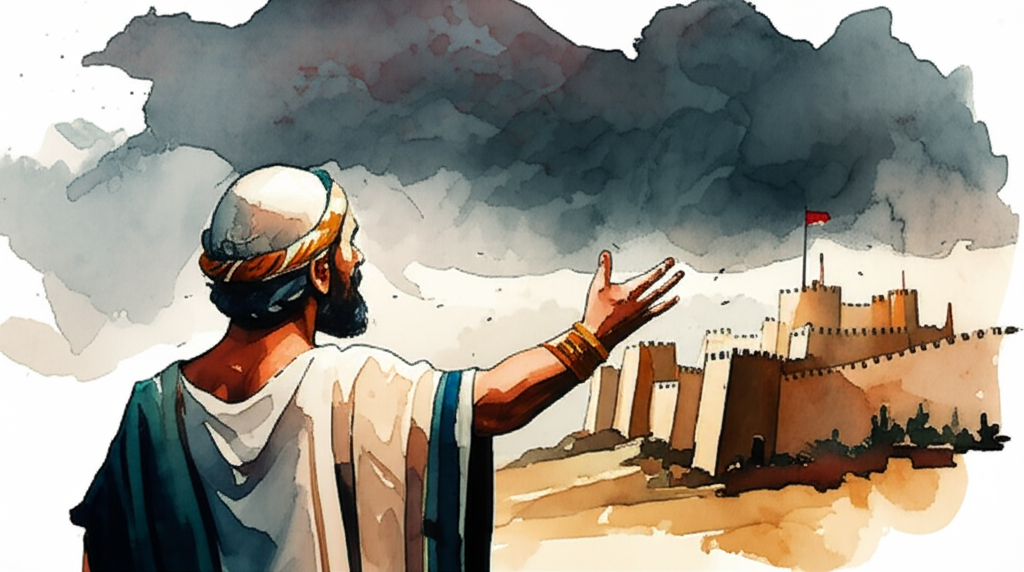
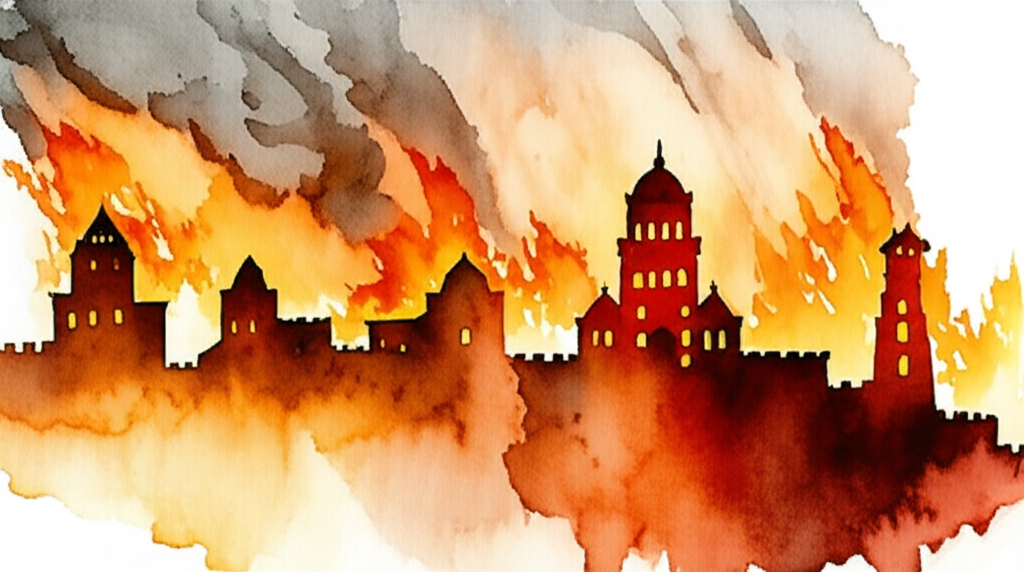
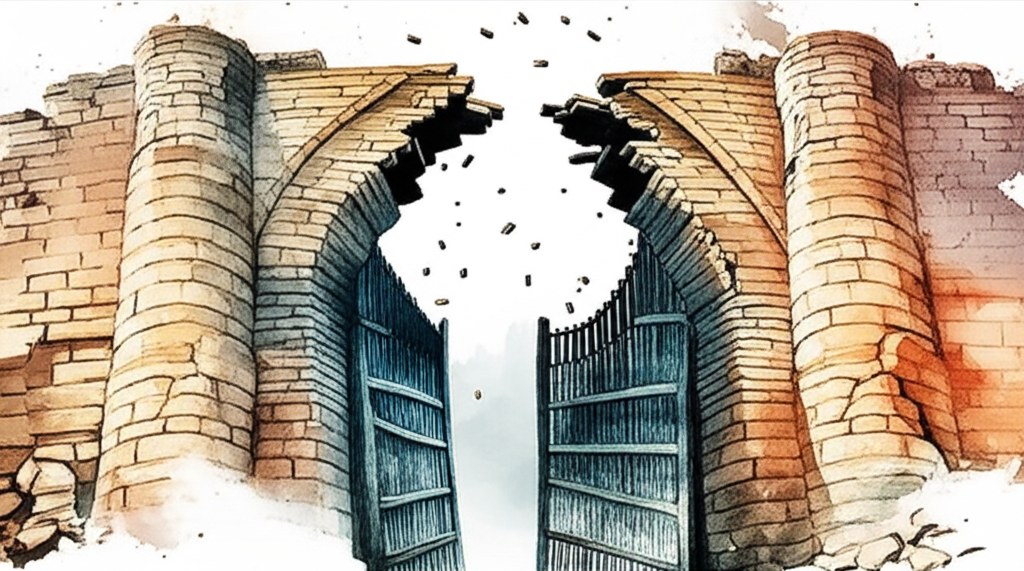
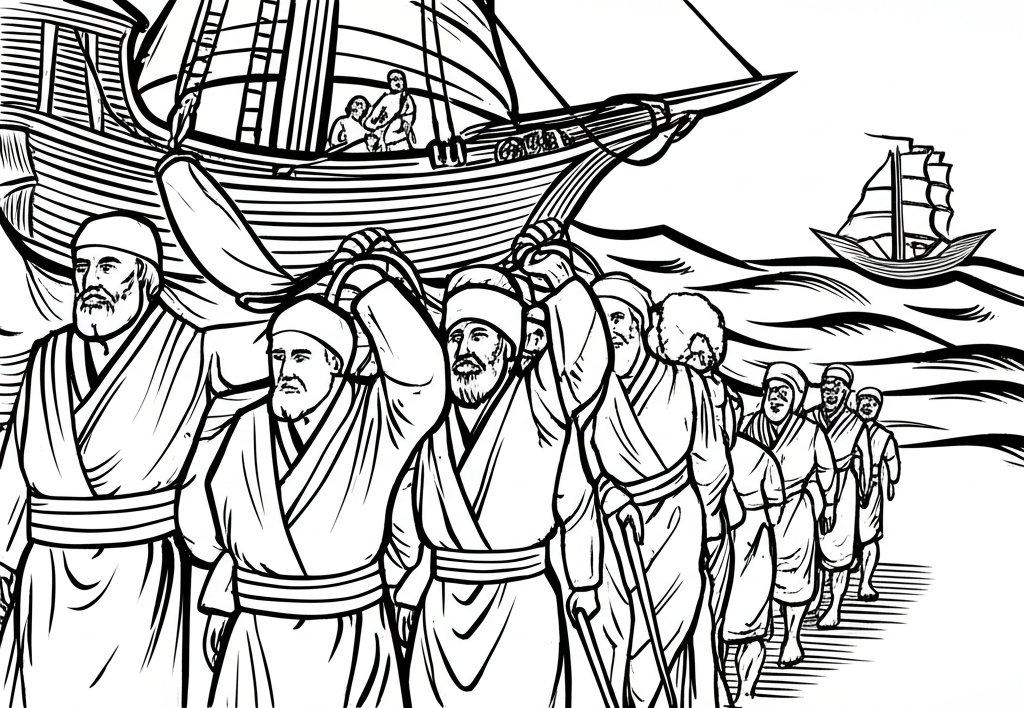

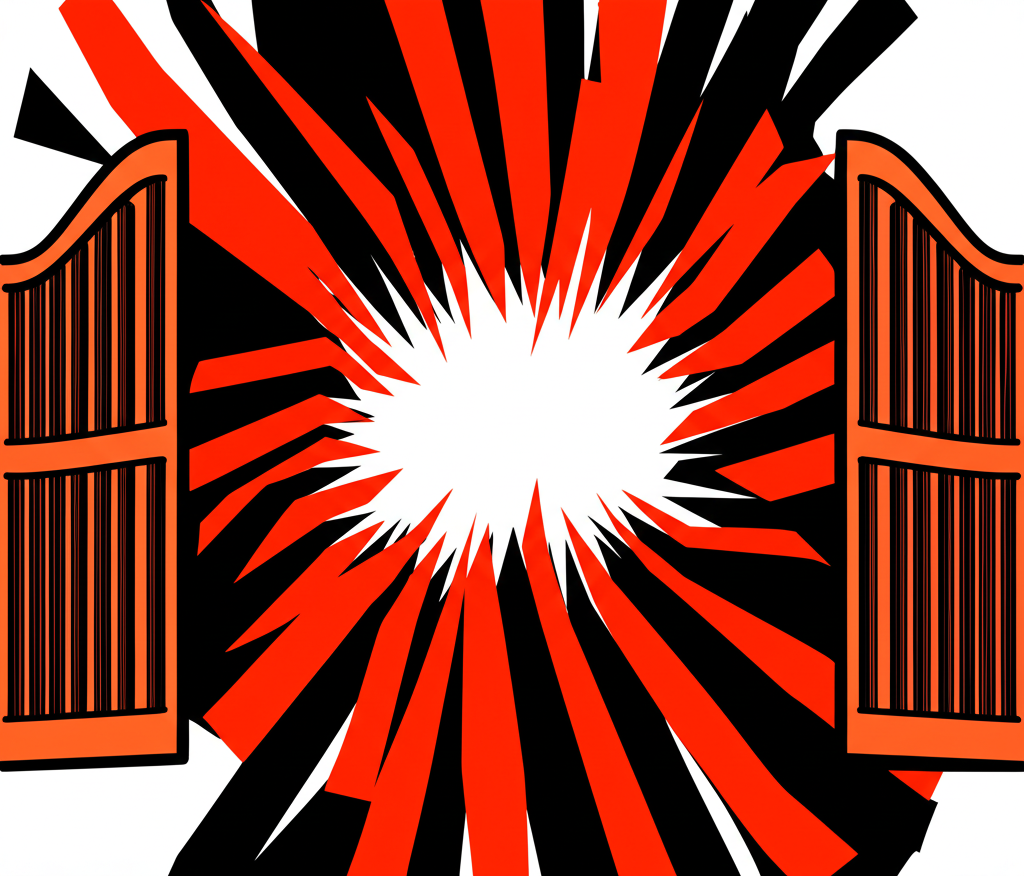
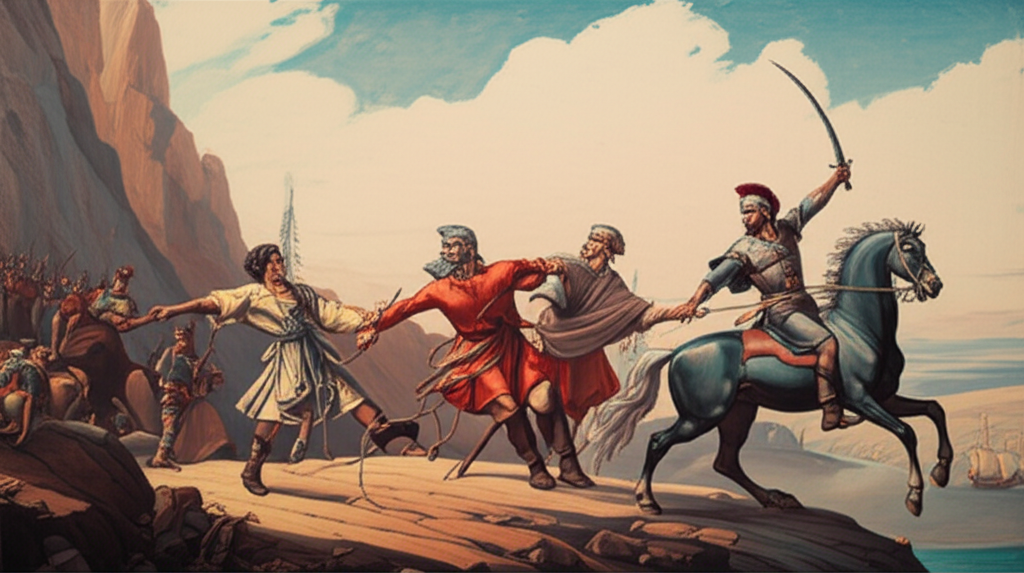
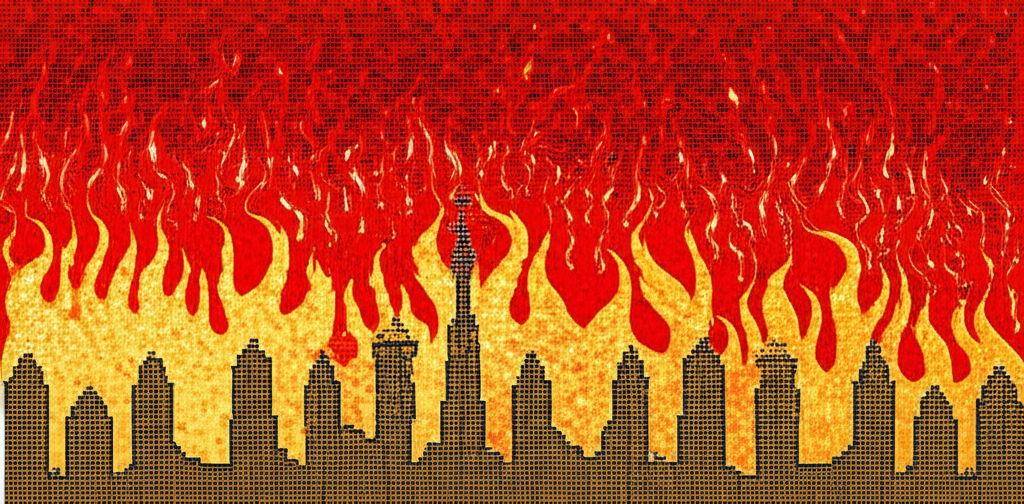
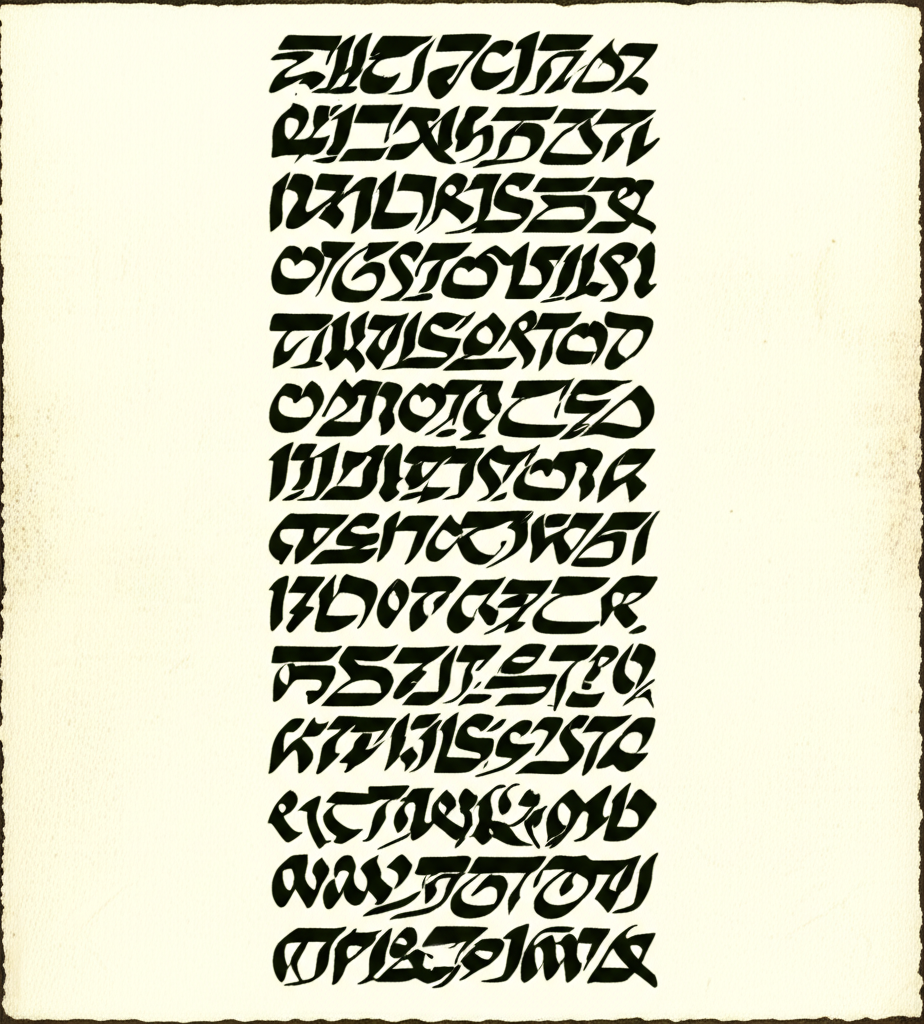
Amos chapter 2 kjv
- 1 Thus saith the LORD; For three transgressions of Moab, and for four, I will not turn away the punishment thereof; because he burned the bones of the king of Edom into lime:
- 2 But I will send a fire upon Moab, and it shall devour the palaces of Kirioth: and Moab shall die with tumult, with shouting, and with the sound of the trumpet:
- 3 And I will cut off the judge from the midst thereof, and will slay all the princes thereof with him, saith the LORD.
- 4 Thus saith the LORD; For three transgressions of Judah, and for four, I will not turn away the punishment thereof; because they have despised the law of the LORD, and have not kept his commandments, and their lies caused them to err, after the which their fathers have walked:
- 5 But I will send a fire upon Judah, and it shall devour the palaces of Jerusalem.
- 6 Thus saith the LORD; For three transgressions of Israel, and for four, I will not turn away the punishment thereof; because they sold the righteous for silver, and the poor for a pair of shoes;
- 7 That pant after the dust of the earth on the head of the poor, and turn aside the way of the meek: and a man and his father will go in unto the same maid, to profane my holy name:
- 8 And they lay themselves down upon clothes laid to pledge by every altar, and they drink the wine of the condemned in the house of their god.
- 9 Yet destroyed I the Amorite before them, whose height was like the height of the cedars, and he was strong as the oaks; yet I destroyed his fruit from above, and his roots from beneath.
- 10 Also I brought you up from the land of Egypt, and led you forty years through the wilderness, to possess the land of the Amorite.
- 11 And I raised up of your sons for prophets, and of your young men for Nazarites. Is it not even thus, O ye children of Israel? saith the LORD.
- 12 But ye gave the Nazarites wine to drink; and commanded the prophets, saying, Prophesy not.
- 13 Behold, I am pressed under you, as a cart is pressed that is full of sheaves.
- 14 Therefore the flight shall perish from the swift, and the strong shall not strengthen his force, neither shall the mighty deliver himself:
- 15 Neither shall he stand that handleth the bow; and he that is swift of foot shall not deliver himself: neither shall he that rideth the horse deliver himself.
- 16 And he that is courageous among the mighty shall flee away naked in that day, saith the LORD.
Amos chapter 2 nkjv
- 1 Thus says the LORD: "For three transgressions of Moab, and for four, I will not turn away its punishment, Because he burned the bones of the king of Edom to lime.
- 2 But I will send a fire upon Moab, And it shall devour the palaces of Kerioth; Moab shall die with tumult, With shouting and trumpet sound.
- 3 And I will cut off the judge from its midst, And slay all its princes with him," Says the LORD.
- 4 Thus says the LORD: "For three transgressions of Judah, and for four, I will not turn away its punishment, Because they have despised the law of the LORD, And have not kept His commandments. Their lies lead them astray, Lies which their fathers followed.
- 5 But I will send a fire upon Judah, And it shall devour the palaces of Jerusalem."
- 6 Thus says the LORD: "For three transgressions of Israel, and for four, I will not turn away its punishment, Because they sell the righteous for silver, And the poor for a pair of sandals.
- 7 They pant after the dust of the earth which is on the head of the poor, And pervert the way of the humble. A man and his father go in to the same girl, To defile My holy name.
- 8 They lie down by every altar on clothes taken in pledge, And drink the wine of the condemned in the house of their god.
- 9 "Yet it was I who destroyed the Amorite before them, Whose height was like the height of the cedars, And he was as strong as the oaks; Yet I destroyed his fruit above And his roots beneath.
- 10 Also it was I who brought you up from the land of Egypt, And led you forty years through the wilderness, To possess the land of the Amorite.
- 11 I raised up some of your sons as prophets, And some of your young men as Nazirites. Is it not so, O you children of Israel?" Says the LORD.
- 12 "But you gave the Nazirites wine to drink, And commanded the prophets saying, 'Do not prophesy!'
- 13 "Behold, I am weighed down by you, As a cart full of sheaves is weighed down.
- 14 Therefore flight shall perish from the swift, The strong shall not strengthen his power, Nor shall the mighty deliver himself;
- 15 He shall not stand who handles the bow, The swift of foot shall not escape, Nor shall he who rides a horse deliver himself.
- 16 The most courageous men of might Shall flee naked in that day," Says the LORD.
Amos chapter 2 niv
- 1 This is what the LORD says: "For three sins of Moab, even for four, I will not relent. Because he burned to ashes the bones of Edom's king,
- 2 I will send fire on Moab that will consume the fortresses of Kerioth. Moab will go down in great tumult amid war cries and the blast of the trumpet.
- 3 I will destroy her ruler and kill all her officials with him," says the LORD.
- 4 This is what the LORD says: "For three sins of Judah, even for four, I will not relent. Because they have rejected the law of the LORD and have not kept his decrees, because they have been led astray by false gods, the gods their ancestors followed,
- 5 I will send fire on Judah that will consume the fortresses of Jerusalem."
- 6 This is what the LORD says: "For three sins of Israel, even for four, I will not relent. They sell the innocent for silver, and the needy for a pair of sandals.
- 7 They trample on the heads of the poor as on the dust of the ground and deny justice to the oppressed. Father and son use the same girl and so profane my holy name.
- 8 They lie down beside every altar on garments taken in pledge. In the house of their god they drink wine taken as fines.
- 9 "Yet I destroyed the Amorites before them, though they were tall as the cedars and strong as the oaks. I destroyed their fruit above and their roots below.
- 10 I brought you up out of Egypt and led you forty years in the wilderness to give you the land of the Amorites.
- 11 "I also raised up prophets from among your children and Nazirites from among your youths. Is this not true, people of Israel?" declares the LORD.
- 12 "But you made the Nazirites drink wine and commanded the prophets not to prophesy.
- 13 "Now then, I will crush you as a cart crushes when loaded with grain.
- 14 The swift will not escape, the strong will not muster their strength, and the warrior will not save his life.
- 15 The archer will not stand his ground, the fleet-footed soldier will not get away, and the horseman will not save his life.
- 16 Even the bravest warriors will flee naked on that day," declares the LORD.
Amos chapter 2 esv
- 1 Thus says the LORD: "For three transgressions of Moab, and for four, I will not revoke the punishment, because he burned to lime the bones of the king of Edom.
- 2 So I will send a fire upon Moab, and it shall devour the strongholds of Kerioth, and Moab shall die amid uproar, amid shouting and the sound of the trumpet;
- 3 I will cut off the ruler from its midst, and will kill all its princes with him," says the LORD.
- 4 Thus says the LORD: "For three transgressions of Judah, and for four, I will not revoke the punishment, because they have rejected the law of the LORD, and have not kept his statutes, but their lies have led them astray, those after which their fathers walked.
- 5 So I will send a fire upon Judah, and it shall devour the strongholds of Jerusalem."
- 6 Thus says the LORD: "For three transgressions of Israel, and for four, I will not revoke the punishment, because they sell the righteous for silver, and the needy for a pair of sandals ?
- 7 those who trample the head of the poor into the dust of the earth and turn aside the way of the afflicted; a man and his father go in to the same girl, so that my holy name is profaned;
- 8 they lay themselves down beside every altar on garments taken in pledge, and in the house of their God they drink the wine of those who have been fined.
- 9 "Yet it was I who destroyed the Amorite before them, whose height was like the height of the cedars and who was as strong as the oaks; I destroyed his fruit above and his roots beneath.
- 10 Also it was I who brought you up out of the land of Egypt and led you forty years in the wilderness, to possess the land of the Amorite.
- 11 And I raised up some of your sons for prophets, and some of your young men for Nazirites. Is it not indeed so, O people of Israel?" declares the LORD.
- 12 "But you made the Nazirites drink wine, and commanded the prophets, saying, 'You shall not prophesy.'
- 13 "Behold, I will press you down in your place, as a cart full of sheaves presses down.
- 14 Flight shall perish from the swift, and the strong shall not retain his strength, nor shall the mighty save his life;
- 15 he who handles the bow shall not stand, and he who is swift of foot shall not save himself, nor shall he who rides the horse save his life;
- 16 and he who is stout of heart among the mighty shall flee away naked in that day," declares the LORD.
Amos chapter 2 nlt
- 1 This is what the LORD says: "The people of Moab have sinned again and again,
and I will not let them go unpunished!
They desecrated the bones of Edom's king,
burning them to ashes. - 2 So I will send down fire on the land of Moab,
and all the fortresses in Kerioth will be destroyed.
The people will fall in the noise of battle,
as the warriors shout and the ram's horn sounds. - 3 And I will destroy their king
and slaughter all their princes,"
says the LORD. - 4 This is what the LORD says: "The people of Judah have sinned again and again,
and I will not let them go unpunished!
They have rejected the instruction of the LORD,
refusing to obey his decrees.
They have been led astray by the same lies
that deceived their ancestors. - 5 So I will send down fire on Judah,
and all the fortresses of Jerusalem will be destroyed." - 6 This is what the LORD says: "The people of Israel have sinned again and again,
and I will not let them go unpunished!
They sell honorable people for silver
and poor people for a pair of sandals. - 7 They trample helpless people in the dust
and shove the oppressed out of the way.
Both father and son sleep with the same woman,
corrupting my holy name. - 8 At their religious festivals,
they lounge in clothing their debtors put up as security.
In the house of their gods,
they drink wine bought with unjust fines. - 9 "But as my people watched,
I destroyed the Amorites,
though they were as tall as cedars
and as strong as oaks.
I destroyed the fruit on their branches
and dug out their roots. - 10 It was I who rescued you from Egypt
and led you through the desert for forty years,
so you could possess the land of the Amorites. - 11 I chose some of your sons to be prophets
and others to be Nazirites.
Can you deny this, my people of Israel?"
asks the LORD. - 12 "But you caused the Nazirites to sin by making them drink wine,
and you commanded the prophets, 'Shut up!' - 13 "So I will make you groan
like a wagon loaded down with sheaves of grain. - 14 Your fastest runners will not get away.
The strongest among you will become weak.
Even mighty warriors will be unable to save themselves. - 15 The archers will not stand their ground.
The swiftest runners won't be fast enough to escape.
Even those riding horses won't be able to save themselves. - 16 On that day the most courageous of your fighting men
will drop their weapons and run for their lives,"
says the LORD.
- Bible Book of Amos
- 1 Judgment on Israel's Neighbors
- 2 Judgment on Judah
- 3 Israel's Guilt and Punishment
- 4 Israel Has Not Returned to the Lord
- 5 Seek the Lord and Live
- 6 Woe to Those at Ease in Zion
- 7 Warning Visions
- 8 The Coming Day of Bitter Mourning
- 9 The Destruction of Israel